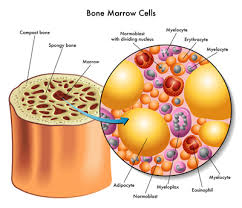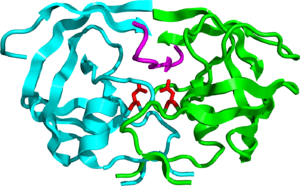
Recently Diagnosed or Relapsed? Stop Looking For a Miracle Cure, and Use Evidence-Based Therapies To Enhance Your Treatment and Prolong Your Remission
Multiple Myeloma an incurable disease, but I have spent the last 25 years in remission using a blend of conventional oncology and evidence-based nutrition, supplementation, and lifestyle therapies from peer-reviewed studies that your oncologist probably hasn't told you about.
Click the orange button to the right to learn more about what you can start doing today.
- You are here:
- Home »
- Blog »
- Multiple Myeloma »
- MDR, End-Stage Multiple Myeloma- Any Suggestions?
MDR, End-Stage Multiple Myeloma- Any Suggestions?
“The most commonly reported side effects included keratopathy, decreased visual acuity, nausea, blurred vision, pyrexia, infusion-related reactions and fatigue.”
Hi David- I am worried that my mom has reached end-stage Multiple Myeloma. My mom was diagnosed with MM 2 years ago. She underwent an autologous stem cell/bone marrow transplant, many different types of chemo, failed out of a CAR-T trial, and the latest was a brand new treatment called BLENREP.
She responded horribly to the BLENREP and the doctor suggested she stop treatment and gave her a few months. She is very weak and very sick. Is it too late to use the green tea and cucurmin for her? Any other suggestions?
- a bone marrow transplant,
- many different types of chemo
- CAR-T Cell therapy
- BLENREP
- red blood cell,
- white blood cell,
- platelet counts?
Recommended Reading:
- Multiple Myeloma Chemotherapy, Allergy, Hypersensitivity, Side Effects?
- Multiple Myeloma Chemotherapy – Antioxidants Enhance Action
- Multiple Myeloma Chemotherapy = Accelerated Aging
Drug resistance in multiple myeloma
Multiple Myeloma Chemotherapy- Proteasome Inhibitors
The challenge for multiple myeloma survivors however, is that each proteasome inhibitor will stop working eventually. MDR aka multi-drug resistance is a fact for all multiple myeloma chemotherapy regimens.
If you are a MM patient or survivor who has undergone several multiple myeloma chemotherapy regimens already and is wondering about your next therapy steps, consider integrative therapies- combinations of conventional and non-conventional proteasome inhibitors that integrate or enhance each other…”
FDA Approves Blenrep to Treat Relapsed/Refractory Multiple Myeloma
“The Food and Drug Administration approved Blenrep (belantamab mafodotin-blmf) to treat patients with relapsed/refractory multiple myeloma who have received 4 prior therapies…
The indication, which includes patients who have received 4 prior therapies including an anti-CD38 monoclonal antibody or a proteasome inhibitor and an immunomodulatory agent, is approved under accelerated approval based on a 31% response rate in the DREAMM-2 study.
In addition, the median duration of response had not been reached at the six-month analysis. Of the 73% of patients who responded to therapy, however, their duration of response was six months or longer.
The most commonly reported side effects included keratopathy, decreased visual acuity, nausea, blurred vision, pyrexia, infusion-related reactions and fatigue.
“While treatable, refractory multiple myeloma is a significant clinical challenge with poor outcomes for patients whose disease has become resistant to the current standard of care…”



